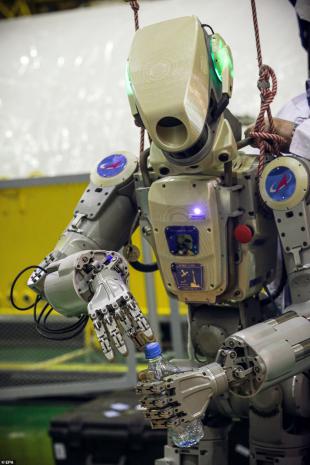
Breaking News
 How To Become Competent, Confident, and Dangerous, with guest Doug Casey
How To Become Competent, Confident, and Dangerous, with guest Doug Casey
 My Hot Take On Bill Gates' Climate Change Essay | Alex Epstein #457 | The Way I Heard It
My Hot Take On Bill Gates' Climate Change Essay | Alex Epstein #457 | The Way I Heard It
 Discussion on Covid Vaccination Should Be Non-Controversial
Discussion on Covid Vaccination Should Be Non-Controversial
Top Tech News
 HUGE 32kWh LiFePO4 DIY Battery w/ 628Ah Cells! 90 Minute Build
HUGE 32kWh LiFePO4 DIY Battery w/ 628Ah Cells! 90 Minute Build
 What Has Bitcoin Become 17 Years After Satoshi Nakamoto Published The Whitepaper?
What Has Bitcoin Become 17 Years After Satoshi Nakamoto Published The Whitepaper?
 Japan just injected artificial blood into a human. No blood type needed. No refrigeration.
Japan just injected artificial blood into a human. No blood type needed. No refrigeration.
 The 6 Best LLM Tools To Run Models Locally
The 6 Best LLM Tools To Run Models Locally
 Testing My First Sodium-Ion Solar Battery
Testing My First Sodium-Ion Solar Battery
 A man once paralyzed from the waist down now stands on his own, not with machines or wires,...
A man once paralyzed from the waist down now stands on his own, not with machines or wires,...
 Review: Thumb-sized thermal camera turns your phone into a smart tool
Review: Thumb-sized thermal camera turns your phone into a smart tool
 Army To Bring Nuclear Microreactors To Its Bases By 2028
Army To Bring Nuclear Microreactors To Its Bases By 2028
 Nissan Says It's On Track For Solid-State Batteries That Double EV Range By 2028
Nissan Says It's On Track For Solid-State Batteries That Double EV Range By 2028
Putin's robo-nauts prepare for lift-off: Russia's space agency releases eerie footage of...

Russia's space agency has released eerie footage of its human-like android which will board the International Space Station next week.
Nicknamed Fedor - which stands for Final Experimental Demonstration Research - the anthropomorphous machine was seen undergoing a battery of stress-tests at the Baikonur Cosmodrome in Kazakhstan.
Dubbed Putin's robo-naut, the machine can be seen determining targets and honing in on specific points, such as steering wheels, which will surely come in handy while they're in orbit.
The scenes come ahead of its inclusion on the unmanned Soyuz MS-14 spacecraft on 22 August 2019.
Fedor stands 6-foot tall, weighs no less than 233 pounds depending on extra equipment, and can lift up to 44 pounds of cargo.
The robot can 'crawl, stand up after falling down, take and leave driver's seat in a car, use tools and operate in a regular building'.

 Dark Tidings
Dark Tidings Carbon based computers that run on iron
Carbon based computers that run on iron

